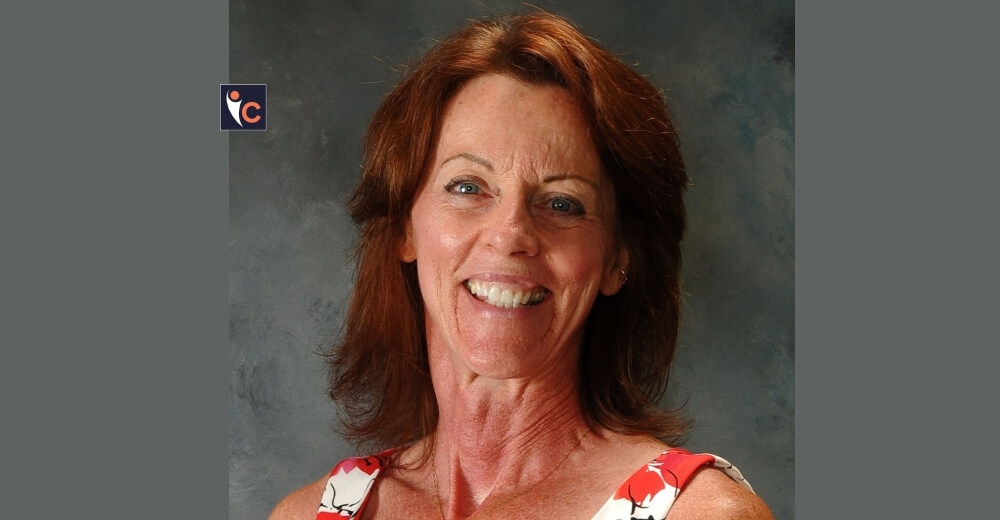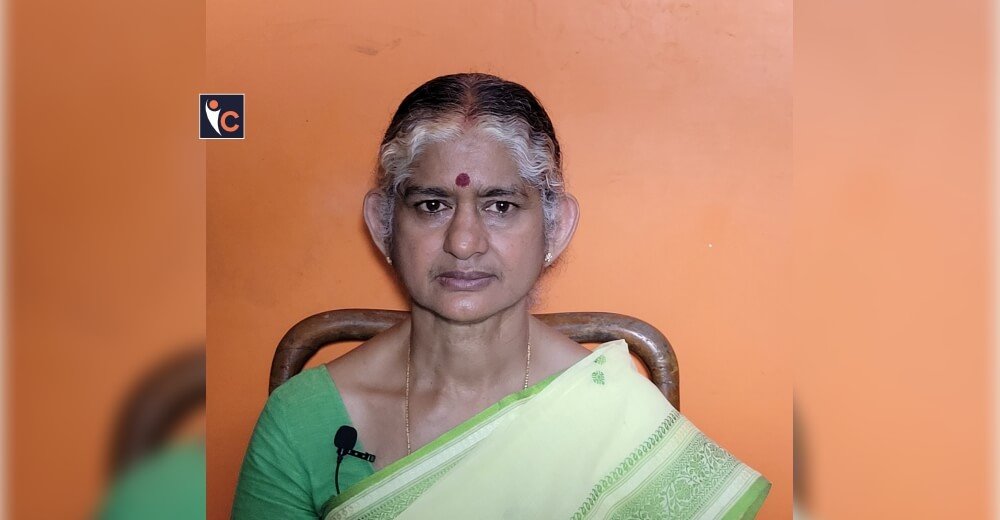In terms of women’s health, certain conditions are often overlooked, leaving those affected feeling isolated and neglected. Pelvic Organ Prolapse (POP) is one such condition, affecting millions of women globally, yet it remains cloaked in stigma and misunderstanding. This silence is an obstacle that prevents women from seeking the help they desperately need. Breaking through this barrier requires more than just awareness—it demands a champion willing to confront the stigma and bring the issue to light.
In 2010, such a pioneer emerged. Sherrie Palm, driven by her personal experience with pelvic organ prolapse, decided to rewrite the narrative surrounding this condition. She founded the Association for Pelvic Organ Prolapse Support (APOPS), an organization dedicated to addressing POP head-on. Under her leadership, APOPS has become a beacon of support, education and advocacy for women in 183 countries.
Sherrie’s story is one of transformation. Faced with a diagnosis of a condition she had never heard of, she turned her experience into a mission to ensure that no woman would ever have to face such challenges alone or in silence. Through APOPS, she has provided a platform for women to find their voice, reclaim their health and connect with others who understand their struggles.
Today, APOPS stands as an exemplar of Sherrie’s vision and determination. What began as a personal journey has converted into a global movement, bringing attention to pelvic organ prolapse and empowering countless women to step out of the shadows. Her work has brought much-needed consideration to this often-overlooked condition but has also fostered a community of empathy, education and advocacy that continues to grow under her guidance.
Let’s learn how Sherrie’s journey and the founding of APOPS have sparked a global conversation about pelvic organ prolapse, offering support, education and a voice to millions of women in need!
A Life-changing Moment
For Sherrie, the foundation of APOPS was not merely a professional decision but a personal calling. “We women tend to let our own health needs go unaddressed,” she shares, reflecting on the moment that altered the course of her life.
Diagnosed with multiple sclerosis (MS) at age 30, Sherrie had always been proactive about her health. But it wasn’t until she noticed a strange bulging from her vaginal area—an occurrence that interrupted her daily life—that she became aware of pelvic organ prolapse. “I was a bit disillusioned to be diagnosed with a condition I had never heard of,” she admits, recalling her shock at discovering how common POP was despite its lack of awareness.
Her research revealed that the condition, documented for nearly 4,000 years, affected millions of women globally—yet so few knew about it. “I was livid,” she says, knowing then that something had to change. Her first step toward change was the publication of her first book on pelvic organ prolapse in 2009. It was meant to be a resource for women facing the same confusion and isolation she once felt. But as the book gained traction, Sherrie realized that the issue demanded more than a book—it required a movement.
In 2010, she founded APOPS, a nonprofit organization focused on supporting, educating and advocating for women with POP. “If I wanted to support women effectively, I recognized that organizing a nonprofit can be effective,” she explains. Her mission expanded, transforming from the personal to the collective, giving birth to a global effort that has since changed lives.
Breaking the Silence on Pelvic Organ Prolapse
POP remains one of the most under-discussed women’s health issues, a fact that frustrates Sherrie to no end. “The most common question we hear from our female following is, ‘Why wasn’t I informed or screened for POP sooner?’” she shares. The stigma surrounding vaginal health, especially in relation to conditions like POP, has led to a societal silence that APOPS works tirelessly to break. The organization’s mission is clear—to educate women, practitioners and the general public about POP and its widespread impact.
“Health is health, including vaginal health,” Sherrie asserts. This belief has been central to APOPS’s efforts in challenging the systems that perpetuate the stigma surrounding POP. From battling social media platforms that once banned posts containing the word ‘vagina’ to collaborating with global health organizations, APOPS has fought for visibility and change.
“Prior to validating the voices of women suffering with POP, APOPS had to wake the world up to the biggest secret in women’s health,” Sherrie says. And indeed, the organization’s influence has spread across the globe, with patients and practitioners in 183 countries standing in support of the cause.
The Heartbeat of APOPS
Sherrie’s leadership style is shaped by her unique life experiences and deep empathy for the women she serves. Growing up in both urban Chicago and rural Wisconsin, she learned early on the importance of adaptability and resilience.
Her childhood, spent caring for animals on her family’s farm, instilled in her a strong work ethic and a determination to persevere through challenges. “I learned to be a chameleon at an early age,” Sherrie reflects. This adaptability has been crucial to her success in leading APOPS, especially in a field fraught with societal stigma and resistance.
Yet, her leadership is also deeply rooted in compassion. “I make every effort to treat everyone, regardless of patient, white coat, or white-collar backdrop, with respect,” she mentions. This respect for all individuals, regardless of their role, has fostered a culture of equality and empathy within APOPS.
Empowering Women with Knowledge
One of APOPS’s primary goals is to bridge the gap in education surrounding pelvic organ prolapse. Women often enter the organization’s network without a full understanding of their condition or its implications on their health and quality of life.
APOPS has worked diligently to provide educational tools that empower women to take control of their health. “Since POP screening falls short in women’s wellness protocol, we built a POP Risk Factor Questionnaire,” Sherrie shares. This tool, available in 17 languages, enables women to identify symptoms and seek appropriate medical care.
In addition to the questionnaire, APOPS has developed wall posters and rack cards in both English and Spanish to be displayed in practitioners’ offices. These materials aim to spark conversations between women and their healthcare providers, breaking down the barriers that often prevent women from seeking help.
“We are planning to secure booths at gynecologic conferences in 2025 to explore direct marketing,” Sherrie states, highlighting APOPS’s continued efforts to reach more women globally.
Building a Global Community
The success of APOPS is driven by a supportive community that empowers women through shared experiences and mutual encouragement. “Support is APOPS’s most valuable fulcrum of POP expertise,” Sherrie explains.
One of the organization’s most profound contributions to the global POP community is its closed patient support forum, a space where women from all walks of life can connect, share their stories and seek advice. The forum has grown into a safe haven where women guide one another through the complexities of their condition, offering emotional support and education. “I am so proud of the women in our support structure,” Sherrie shares.
She adds, “Once new members acclimate, they start comparing notes, educating themselves and each other.” The peer support model has proven invaluable, allowing women to feel empowered and informed.
Additionally, the forum has become a learning ground for healthcare professionals including urogynecologists, urologists and physical therapists, who gain insights into the real-life impact of POP that extends beyond their formal education. As Sherrie puts it, “If you want to understand the depths of a health condition, ask the patient.” The uniqueness of the peer support model lies in its ability to offer women not just a wealth of information but a sense of belonging and understanding.
Initiating Global Change
Apart from building a supportive community, APOPS has made significant strides in advocacy and awareness efforts. One of the organization’s standout initiatives is the annual POP Awareness Month (PAM), which has grown steadily since its inception in Wisconsin in 2014. “PAM month is helping lift the veil of silence,” Sherrie says.
Each year, patients, healthcare organizations and industry voices grow louder, advocating for better screening practices and greater recognition of POP’s impact on women’s health. Sherrie’s advocacy extends beyond the United States, with APOPS once working to assist women in Nepal, the only country with a government initiative addressing POP.
Despite the challenges encountered during this program, the experience underscored the importance of addressing global health disparities. APOPS continues to evolve its Women’s Health Empowerment Network (WHEN) program, focusing on providing meaningful support to women in both developed and developing countries. By collaborating with local organizations and healthcare providers, APOPS aims to tailor its approach to the unique needs of each community, ensuring that all women have access to the resources and support they need.
Driving Future Growth and Impact
Sherrie has always been committed to fostering partnerships that advance the organization’s goals. “We feel open sharing of insights is critical to advancing POP screening and treatment,” she explains. APOPS regularly collaborates with National & International researchers, agencies and practitioners to push the boundaries of understanding surrounding pelvic organ prolapse.
“While funding typically falls short of need in the stigmatized health zone, our alliances are committed to advancing POP awareness,” Sherrie points out. These collaborations not only enhance APOPS’s ability to serve women but also contribute to a broader cultural shift in how pelvic health is viewed and addressed.
Measuring Success and Continuing the Fight
For Sherrie, the success of APOPS is measured in the impact the organization has on the lives of women around the world. “Patient and practitioner following in 183 countries says it all in my heart,” she shares. Knowing that APOPS has made a difference in the lives of countless women is what drives her to continue the fight against the stigma surrounding pelvic organ prolapse.
Sherrie acknowledges that there is still a long way to go, but she remains steadfast in her mission. “Zero doubt I’ll be talking about POP from my coffin one day,” she quips with her signature determination. However, she knows that even if her work were to end tomorrow, APOPS has already made tremendous strides in lifting the shroud of stigma that encases POP.
As she reflects on her journey, the most rewarding aspect of her work remains the profound relationships she has made with the women she serves. “Connecting strongly with the women we serve fills my heart more than I can express,” she says.
A Legacy of Empowerment
Sherrie’s work through APOPS is not just about raising awareness of pelvic organ prolapse; it is about empowering women to reclaim their health, dignity and self-esteem. Her journey from a personal health crisis to founding a global nonprofit organization reflects the power of perseverance, empathy and vision. Through her tireless advocacy, Sherrie has transformed the lives of countless women, offering them a voice and a community in which to heal and grow.
As APOPS continues to expand its reach and impact, Sherrie remains focused on the organization’s core values. Her work has created an undeniable impact, and as awareness of pelvic organ prolapse grows, her legacy of empowerment will continue to inspire future generations of women to take control of their health and advocate for the care they deserve.
Read More: Click Here










